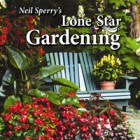Rose Cuttings – October, 2007
Decomposed leaves, bark and other organic matter that makes up compost is the life blood of your soil and garden. An elixir, or “tea,” made from compost has shown to be a miracle drug for plants.
Our native forests are healthy, yet you don’t see people fertilizing them. Mother Nature has ensured that our native flora grow and stay green without the aid of man’s systemic fertilizers. The constant decomposition of leaves, dead branches and bark that falls to the ground provide this nutrition. This organic matter provides food for bacteria, fungi, nematodes and protozoa. The by-products of this feeding provide all the nutrients and minerals necessary for the forest to thrive. Symbiotic relationships between these plants and microbes enable plants to fight off diseases, drink and retain water. This “living soil” is the basis by which all plants grow.
It’s been long known that extractions made by running water through or soaking with compost and then drenching your plants with this extract has been beneficial. But a more recent break through in this process occurred when Dr Elaine Ingham, a soil microbiologist in Oregon, aerated this “lechate tea” for several hours. Microbes, specifically bacteria, fungi and ciliates that live in compost were allowed to multiply in this oxygen-rich brew. The exponential growth of these microbes was aided by the addition of food like molasses and seaweed extracts.
This super population of beneficial fungi and bacteria are like armies for your plants. These aerobic microbes actually compete with and kill the fungus causing mildew, and the bacteria causing blackspot. They also aid in improving water retention and soil porosity and create symbiotic relationship with the roots of plants aiding in the search and retention of nutrients. Aerobically brewed compost tea allows the “good” microbes in the compost to increase while discouraging the “bad” bacteria.
Making tea can be tricky since you are dealing with living organisms. Temperature, amount and type of food, quality of compost and duration of brewing time can all affect the quality of the final product. If brewed correctly, it has a sweet, earthy fragrance and is safe to use around pets and people. The tea can be diluted (one part to 10 parts water) but must be used within a few hours. Application is achieved by drenching or spraying your plants, whether they are houseplants, lawns, vegetable, garden or landscape. If the tea smells putrid (like rotten eggs) or ammonia, then it has gone anaerobic and should be discarded.
At the Antique Rose Emporium, we have all but stopped the use of fungicide and insecticides in our greenhouse where we propagate thousands of roses. In the last year of use, we have experienced an effective control of downy mildew, powdery mildew, black spot as well as aphid and red spider control. Harnessing what Mother Nature produces naturally in compost versus the expense and concern of using toxic chemicals has been a welcomed transition.
About the author: Mike Shoup is owner of Antique Rose Emporium, with locations in Independence and San Antonio. See www.weAREroses.com for more.

